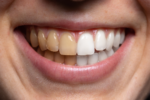
The wisdom teeth of so many people have been partially or completely removed. Typically, people had them taken out because their dentist recommended it. It’s possible that they were coming from a twisted position or applying undue pressure to your jaw or other teeth. Your dentist in Red Deer likely informed you numerous times that your wisdom teeth wouldn’t fit if you had them removed.
Why Wisdom Tooth Extraction is Needed
Wisdom teeth can become impacted, crowded, or fail to fully erupt if they erupt in the incorrect places or if there isn’t enough room for them in your jaw. As they are impossible to clean when they are below the gum line, this might have negative effects on dental health. When they are crowded, it is challenging to reach them with a toothbrush and to correctly floss.
They may also result in
- Infection (which causes discomfort)
- Difficulty opening your mouth, eating, or biting
- Poor breath
- Your jaw or face swelling (perhaps due to an illness)
- When an emergency occurs: chest pain, dizziness, and difficulty breathing
As molars—especially your third molars—are more prone to dental issues than other teeth in your mouth, your dentist might suggest removing wisdom teeth through oral surgery in Red Deer as a preventive measure.
Benefits of Wisdom Teeth Surgery
The benefits of having your wisdom teeth removed include:
- Preventing rotting or infection
- Protecting other teeth from harm
- Reducing or eliminating mouth and face pain
- Addressing the problem of foul breath
- Avoiding the future need for more dental or orthodontic work
- Enhancing dental health
The Procedure
Anesthesia
First, the tooth and surrounding area will be made completely painless using a local anesthetic. Your dentist near you may give you a sedative to help you relax if you are extremely concerned about your surgery; this usually involves an injection into your arm. Only in situations where the procedure is carried out in a hospital is a general anesthetic used.
Extracting the Tooth
A minor cut or incision will be made if the tooth is still under the gum, and it might also be necessary to remove a small bit of the tooth’s surrounding bone. To make it simpler to remove the tooth through the opening, your dentist or surgeon may chop it into smaller pieces.
A smaller incision will be required if the tooth has broken through the gum. You may feel some pressure right before the tooth is removed when the dentist or surgeon shakes the tooth back and forth to expand the socket.
You shouldn’t experience any discomfort as your wisdom teeth are really removed because the anesthetic will have numbed the area.
Simple wisdom tooth extraction operations can last up to 20 minutes, while more difficult ones require more time.
Recovery from Wisdom Teeth Removal
On the same day as your procedure, you ought to be able to return home. An application of gauze may be made to the extraction site while dissolving stitches typically take between 7 and 10 days to disintegrate.
For around an hour, you’ll be instructed to maintain pressure on it by biting your teeth together. This enables a blood clot to develop inside the vacant socket, aiding in the healing process. Antibiotics may be recommended to you in order to prevent infection.
You should refrain from the following for 24 hours following your surgery:
- Consuming hot beverages like coffee or soup
- Using liquid to rinse your mouth (which could help the clot come loose)
- Drinking alcohol or smoking (which could cause illness)
- Exercise that is strenuous (which could lead to bleeding)
Do you have any questions about how having your wisdom teeth removed will help you with oral surgery near you? Our dentists at Alpen Dental can walk you through the treatment and address any questions you may have. Please call us right away!







